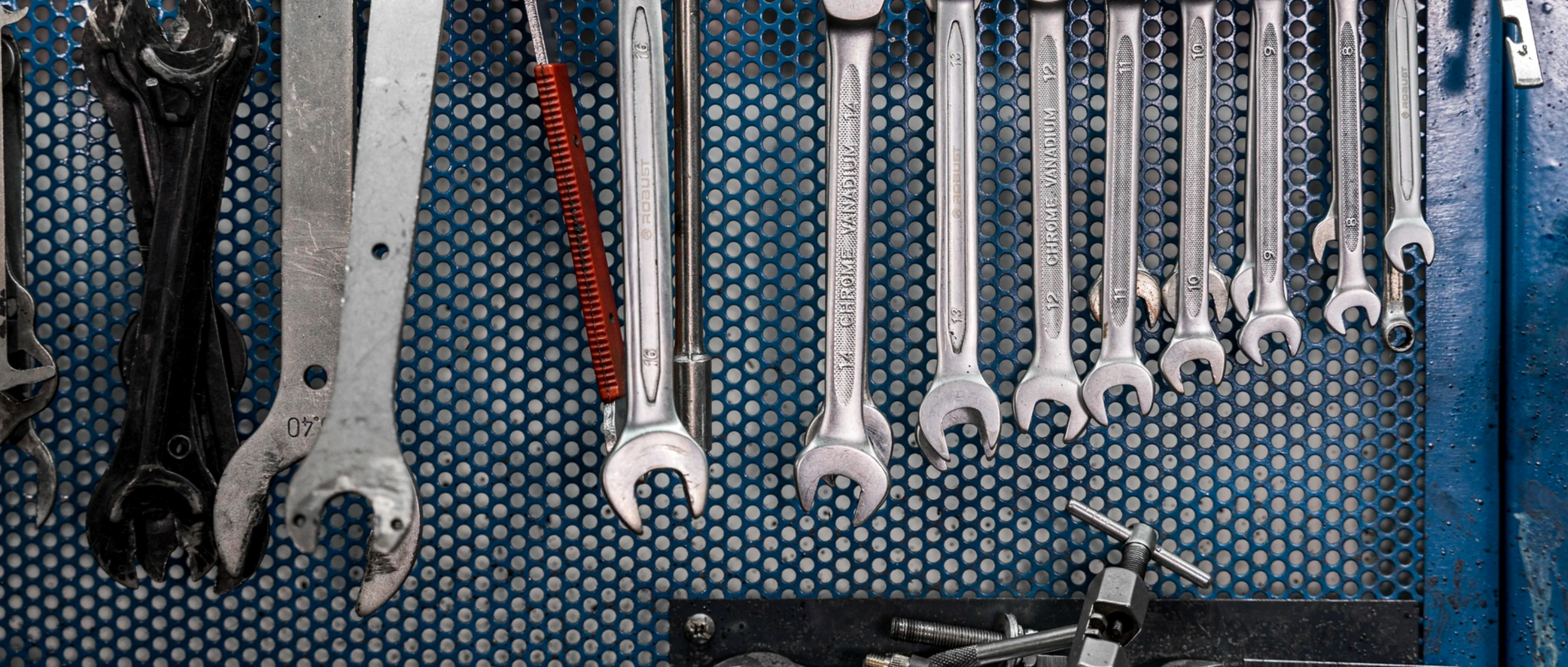Archive for January 2020H20 No! (Driving Through Standing Water)Posted January 19, 2020 7:57 AMIn a year marked by unusually heavy flooding in North America, drivers are very aware of the possibility they may find themselves driving where water has come over the road. It can be a daunting and frightening situation. Flooding waters can move quickly and unpredictably, so you have to keep your wits about you when you encounter that situation. Here a sample of one vehicle manufacturer's guidelines on what to do. First, the vehicle is designed to go through some water, but you must be careful. Never attempt to drive through water deeper than the bottom of your tires. You can get out of your vehicle to check the depth of the water, but you can never be sure that you aren't going to drive into a spot where the road has washed away. You can't see below the surface of the water, and suddenly you could find yourself in a place where the road drops off unexpectedly. In swift moving storm runoff, your vehicle could literally be floating away with the current, putting your life and those of your passengers in mortal danger. Never go more than 5mph/8 km/hr when you drive through standing water. That minimizes the waves you create. If you DO find yourself in water that is touching your drivetrain components, that water can damage them. And if you get water in your engine, it can lock up in seconds and stall. The potential damage can be catastrophic. You may have found yourself driving in water deep enough to reach your drivetrain components, and it's essential that you have a technician check the fluids to make sure they haven't been contaminated. That includes engine oil, transmission and axle. Driving with fluids contaminated with water can severely damage those components. The bottom line is to avoid driving through water at all if you possibly can. Check your vehicle's owner's manual to see if there are specific guidelines for driving YOUR vehicle in standing water. It's information that could save your life. Car Doc On The Island When Metal Meets Metal (Wheel Bearings)Posted January 12, 2020 10:13 AMWhat part of your vehicle has little metal balls inside that are lubricated and allow you to cruise on down the road? They are wheel bearings, and automotive designers might argue they are human beings' second greatest invention of all time (the first is, of course, the wheel!). You have a wheel bearing at each wheel. They allow your wheels to turn freely, minimizing friction that would ordinarily slow you down when metal meets metal. When one of your wheel bearings starts to go bad, it lets you know. A wheel bearing does its work quietly when it's in good health but starts getting noisy when it isn't. People describe the noise differently. Sometimes it sounds like road noise, a pulsating, rhythmic, sound. That pulse speeds up when your vehicle speeds up. Here's what's happening when you hear that sound. As mentioned, the bearing has these little metal balls inside a ring. They have a lubricant inside to reduce friction between the balls; modern wheel bearings are sealed and they're intended to do their job without any maintenance. Wheel bearings take a beating; you hit some rough potholes or go over some uneven railroad tracks. Sometimes water can get into a bearing and reduce the ability of the lubricant to do its job. Time starts to take its toll, too. When the lubricant isn't reducing friction like it should, the bearing can heat up. One of those little balls can start shedding pieces of metal and soon those shards start grinding up the other balls. Friction takes over and soon your wheel isn't turning smoothly. That's what's causing the sound. If a wheel bearing is not fixed, it could eventually seize up completely, and you can be stranded. It's a lot easier if you heed the early warning signals, that pulsating noise. Now, sometimes a similar noise can be caused by a bad tire, but in either case, it's important to have it checked out. Our Car Doc On The Island technicians will be able to tell you fairly quickly what the problem is and offer a solution. Wheel bearings generally don't fail often and usually last from 85,000-100,000 miles/140,000km to 160,000km. But consider them a long-term maintenance item that, once fixed, will keep you heading smoothly to the next destination. Car Doc On The Island Wash Me, Wash Me Right (How to Wash a Vehicle)Posted January 5, 2020 8:30 AMMost would agree they'd rather drive around in a clean, shiny vehicle than one coated with a layer of dirt. When warmer weather comes around, some of us are bound and determined to wash our own vehicles. And to protect the paint and its luster, there are a few things to keep in mind when you get out the bucket and soap.
The next time you have your vehicle in for maintenance, you might ask your service advisor for recommendations on vehicle washing accessories. They are usually up on the brands that produce the best results. You may not be a detailing pro, but there's no reason your vehicle can't look like you are. Car Doc On The Island The Edible EnginePosted January 1, 2020 7:44 AMYou may have had a friend whose vehicle was the victim of hungry rodents. After all, mice, rats and squirrels—even rabbits—have been known to gnaw on wires in engine compartments, causing vehicle electrical systems to go haywire. They can disable a vehicle completely and be very expensive to fix. In 2017, some drivers noticed their vehicle's wiring was being chewed and found out the automaker was using a relatively new material for covering their wires: soy. Many of the repairs to their new vehicles weren't covered under warranty by the manufacturer when it was discovered rodents were eating the wiring. So the owners filed a class action suit, saying the soy covering was essentially baiting the critters. The automakers tell a different story, saying mice, rats and squirrels have been chewing through wire insulation long before it was made out of soy. Regardless of what the insulation is made of, vehicle owners should make sure rodents aren't chowing down and creating a problem in the engine compartment. They can have their repair facility check for these signs: Little bits of acorns, leaves, chewed up plastic and animal droppings in the engine's nooks and crannies. Using a black light, your technician can detect animal urine, a sure sign that they've been using your engine compartment as a warm apartment, a nest and a dining room. You can take steps to prevent rodents from chomping your vehicle's parts. Honda—one of the vehicle manufacturers that uses soy-based wiring covering—makes a rodent tape. It contains a spice called capsaicin that rodents find too hot to handle. Other preventative measures include installing metal mesh around wiring harnesses or spraying the engine compartment with special rodent-repellants. Rodent damage can cost one vehicle owner thousands of dollars to fix, not the kind of bite anyone wants taken out of their bank account. Car Doc On The Island
419 South Tamiami Trail
Venice, FL 34285
(941) 786-1595
| ||
SearchArchiveApril 2016 (16)May 2016 (5) June 2016 (4) July 2016 (4) August 2016 (5) September 2016 (4) October 2016 (5) November 2016 (4) December 2016 (4) January 2017 (5) February 2017 (4) March 2017 (4) April 2017 (5) May 2017 (4) June 2017 (4) July 2017 (5) August 2017 (4) September 2017 (3) October 2017 (5) November 2017 (4) December 2017 (3) January 2018 (5) February 2018 (4) March 2018 (4) April 2018 (5) May 2018 (4) June 2018 (4) July 2018 (5) August 2018 (4) September 2018 (5) October 2018 (4) November 2018 (4) December 2018 (5) January 2019 (5) February 2019 (4) March 2019 (5) April 2019 (4) May 2019 (4) June 2019 (5) July 2019 (4) August 2019 (4) September 2019 (5) October 2019 (4) November 2019 (4) December 2019 (5) January 2020 (5) February 2020 (4) March 2020 (5) April 2020 (4) May 2020 (5) June 2020 (4) July 2020 (4) August 2020 (5) September 2020 (4) October 2020 (4) November 2020 (5) December 2020 (4) January 2021 (6) February 2021 (4) March 2021 (4) April 2021 (4) May 2021 (5) June 2021 (4) July 2021 (4) August 2021 (5) September 2021 (4) October 2021 (5) November 2021 (4) December 2021 (4) January 2022 (6) February 2022 (4) March 2022 (4) April 2022 (4) May 2022 (5) June 2022 (4) July 2022 (5) August 2022 (4) September 2022 (4) October 2022 (5) November 2022 (4) December 2022 (4) January 2023 (5) February 2023 (4) March 2023 (4) April 2023 (5) May 2023 (4) June 2023 (4) July 2023 (5) August 2023 (4) September 2023 (4) October 2023 (5) November 2023 (4) December 2023 (5) January 2024 (5) February 2024 (4) March 2024 (5) April 2024 (4) May 2024 (4) June 2024 (5) July 2024 (4) August 2024 (4) September 2024 (5) October 2024 (4) November 2024 (4) December 2024 (5) January 2025 (4) February 2025 (4) March 2025 (4) | CategoriesKeys to a long lasting vehicle (2)Timing Belt (2)Fuel Economy (8)Brakes (12)Fluids (7)Maintenance (8)Air Conditioning (6)Safety (1)Exhaust (6)Service Standards (3)Steering (8)What Customers Should Know (67)Dashboard (1)Fuel System (4)Cooling System (5)Alternator (5)Battery (9)Auto Safety (5)Windshield Wipers (2)Service Intervals (2)Wheel Bearings (1)Customer Detective Work (1)Shocks & Struts (2)Tires and Wheels (2)Tire Rotation and Balancing (3)Alignment (4)Winter Tires (1)Tires (8)Suspension (1)Inspection (3)TPMS (2)Drive Train (3)Automotive News (2)Safe Driving (1)Fuel Saving Tip: Slow Down (1)Winter Prep (3)Check Engine Light (2)Oil Change (4)Brake Service (2)Differential Service (1)Spark Plugs (1)Older Vehicles (1)Headlamps (1)Transmission (4)Transfer Case Service (1)Engine Air Filter (1)Cabin Air Filter (1)Fuel Pump (1) | |

AUTONET TV

Testimonials

My truck broke down last week and after calling around Car Doc was the one that was able to get it done sooner. From the minute I called till the day that I pick my car up, they kept me informed they were very professional, respectful and courteous. I will definitely be using them going forward.~ Robert Serena, 03/25/2025










